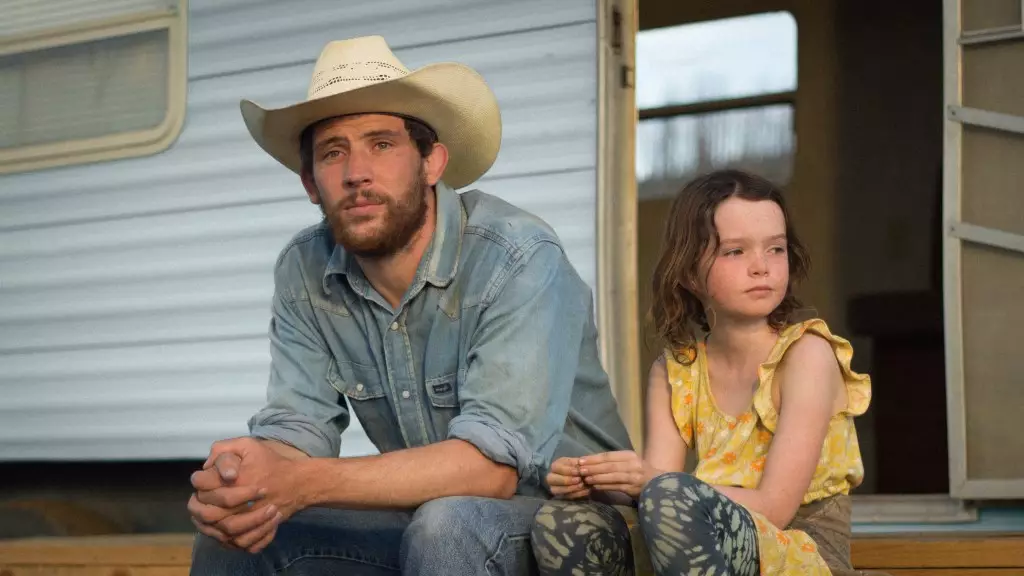In an era where films often depict adversity through a lens of hopelessness, Max Walker-Silverman’s “Rebuilding” emerges as a laudable exception, threading a narrative that captures the resilience of the human spirit amidst calamity. This poignant tale follows Dusty, a cowboy whose life is turned upside down by wildfires that claim his ranch and force him into a FEMA camp. While the premise may present a bleak outlook, the film’s core themes revolve around recovery, resilience, and reconnection, offering an insightful exploration of familial love and human endurance. Compelling performances by Josh O’Connor and an ensemble of talented actors make it not just engaging but also deeply relatable in our current climate rife with uncertainty.
A Standout Exploration of Redemption
The film boldly captures the struggle of reconnecting with estranged family members at a time when the characters are at their most vulnerable. Dusty grapples with deep-seated regrets while tentatively reaching out to his daughter and ex-wife. This exploration of redemption—not just in a personal sense but also socially within the constructs of the modern family—forces viewers to reflect on their own lives and strained relationships. We live in a world where disconnection has become the norm, and “Rebuilding” challenges us to confront our own familial fracturing and the potential for reconciliation.
A Directorial Vision with Heart
Max Walker-Silverman’s direction signals a growing voice in independent cinema that should not go unnoticed. His previous work, “A Love Song,” laid down the groundwork for emotionally intimate storytelling, but “Rebuilding” elevates this vision to new heights. Walker-Silverman skillfully marries his narrative focus with strong performances to elicit an emotional tapestry that is hard to ignore. The film is not merely about the aftermath of destruction; it’s an intricate examination of humanity’s capacity to heal in the wake of overwhelming challenges, a theme that could resonate particularly well in today’s socio-political climate.
Bleecker Street’s Commitment to Quality Storytelling
Bleecker Street’s acquisition of “Rebuilding” signals not only their recognition of Walker-Silverman’s burgeoning talent but also their commitment to diverse storytelling. Following their successful partnership on “A Love Song,” there is a palpable anticipation surrounding this new release. As a distributor, Bleecker Street has carved out a niche in bringing thought-provoking narratives to the forefront, and “Rebuilding” appears poised to further solidify this commitment. In a cinematic landscape often dominated by franchise spectacles, Bleecker Street champions originality, allowing unique voices and stories to take center stage.
The Cultural Relevance of Survival and Connection
The relevance of “Rebuilding” extends beyond its narrative. The film’s setting—a FEMA camp—is emblematic of numerous real-world crises, drawing parallels to how communities rally to support one another in times of disaster. The juxtaposition of physical destruction and emotional healing speaks to conservative values rooted in family, resilience, and the importance of community ties, making it a film that speaks to a broader audience while catering to progressive sentiments around social responsibility.
Such thematic depth ensures that “Rebuilding” will not just be ephemeral entertainment; it is poised to leave a lasting impact, encouraging viewers to engage with their relationships and the world around them more meaningfully. In an age when fostering genuine connections has proven paramount, Walker-Silverman’s film urges us to rebuild, not just our lives but also the ties that bind us to one another.

